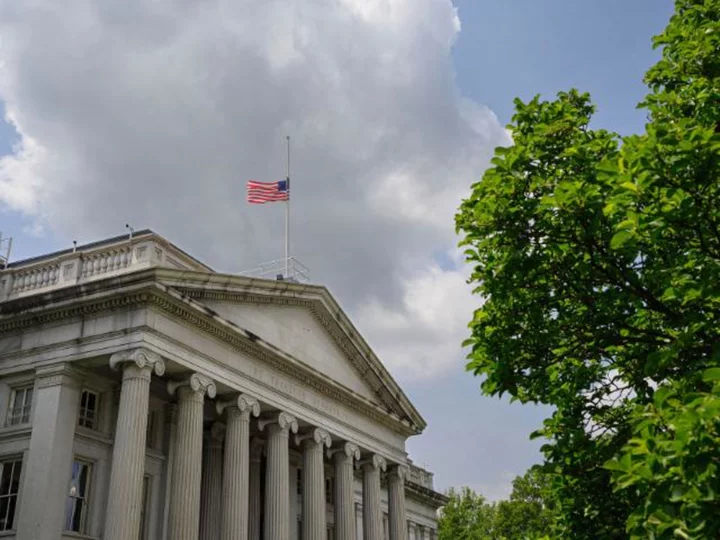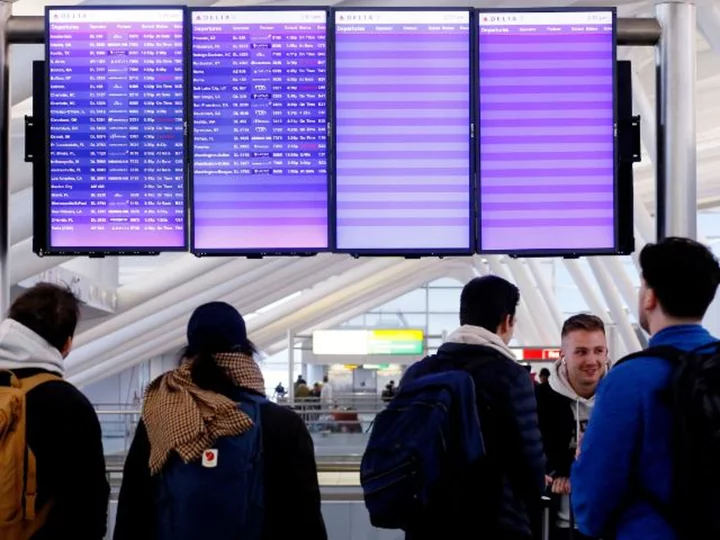Donald Trump won another fight to stay on 2024 election ballots, with a Colorado judge ruling that although the former president engaged in an “insurrection,” he shouldn’t be banned from running for president in the state.
In a 102-page opinion, Denver District Court Judge Sarah Wallace found that the voters who contested Trump’s eligibility for another term in the White House proved that he incited the Jan. 6, 2021, attack on the US Capitol. But she concluded that the constitutional prohibition at the heart of the legal fight wasn’t intended to cover an official who had taken the presidential oath of office.
Wallace wrote in Friday’s ruling that part of her decision was a “reluctance to embrace an interpretation which would disqualify a presidential candidate without a clear, unmistakable indication” that the 19th-century drafters of the constitutional language at issue intended that outcome.
The Colorado case is the first constitutional challenge to Trump’s 2024 run to go through a full trial. The voters who brought the lawsuit can appeal to the Colorado Supreme Court. Whoever loses the next round could petition the US Supreme Court.
Read More: Push to Bump Trump Off 2024 Ballot Raises Election Chaos Concern
Wallace’s ruling follows recent orders in Minnesota and in Michigan that would allow Trump to appear on primary ballots in those states as well.
Ballot Contests
Judges and legal experts have long expressed concern that state-by-state challenges could result in a constitutional crisis if Trump is blocked from presidential ballots in some states but allowed to appear in others.
Trump has faced dozens of lawsuits across the country this year claiming he’s ineligible for another term in the White House under Section 3 of the 14th Amendment. The post-Civil War era provision states that a person who took an oath to support the Constitution and then “engaged in insurrection” is ineligible to hold office again.
Although each state has its own election laws and procedures for challenging a candidate’s eligibility, the 14th Amendment challenges all feature the same overarching claim: That Trump’s role in trying to overturn the results of the 2020 presidential election leading up to the US Capitol attack disqualifies him from being president again.
A number of lawsuits were dismissed early on after judges found challengers lacked standing to sue or had brought claims in the wrong type of court. But the cases in Colorado, Michigan and Minnesota reached stages where judges were in a position to rule on at least some of the core legal questions.
The Minnesota Supreme Court found that the constitutional eligibility issue wasn’t relevant to the primary contest, when state election officials play a largely administrative role helping political parties choose a nominee. The state justices put off ruling on Trump’s eligibility in the general election, however, leaving the door open for the voters who sued to try again next year.
A Michigan Court of Claims judge issued a more sweeping decision in Trump’s favor. That judge concluded that the fight over whether Section 3 bars Trump from another term in the White House was for Congress, not the courts, to resolve. The Michigan voters who sued have appealed.
Wallace presided over a weeks-long trial, hearing testimony from dueling experts on whether courts and state election officials can enforce Section 3, whether the insurrectionist ban can apply to a former president running for reelection, whether Jan. 6 was an “insurrection,” and, if it was, whether Trump “engaged” in it.
The judge also heard from police officers and lawmakers who were at the Capitol during the Jan. 6 attack, a Colorado state election official, a top lawyer for the now-disbanded congressional committee that investigated the 2020 election, and several of Trump’s current and former advisers and supporters.
(Updates with details from the ruling, background on legal fight)









